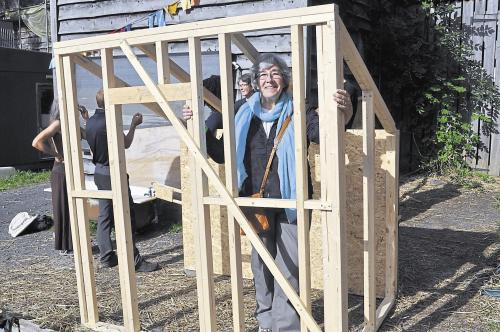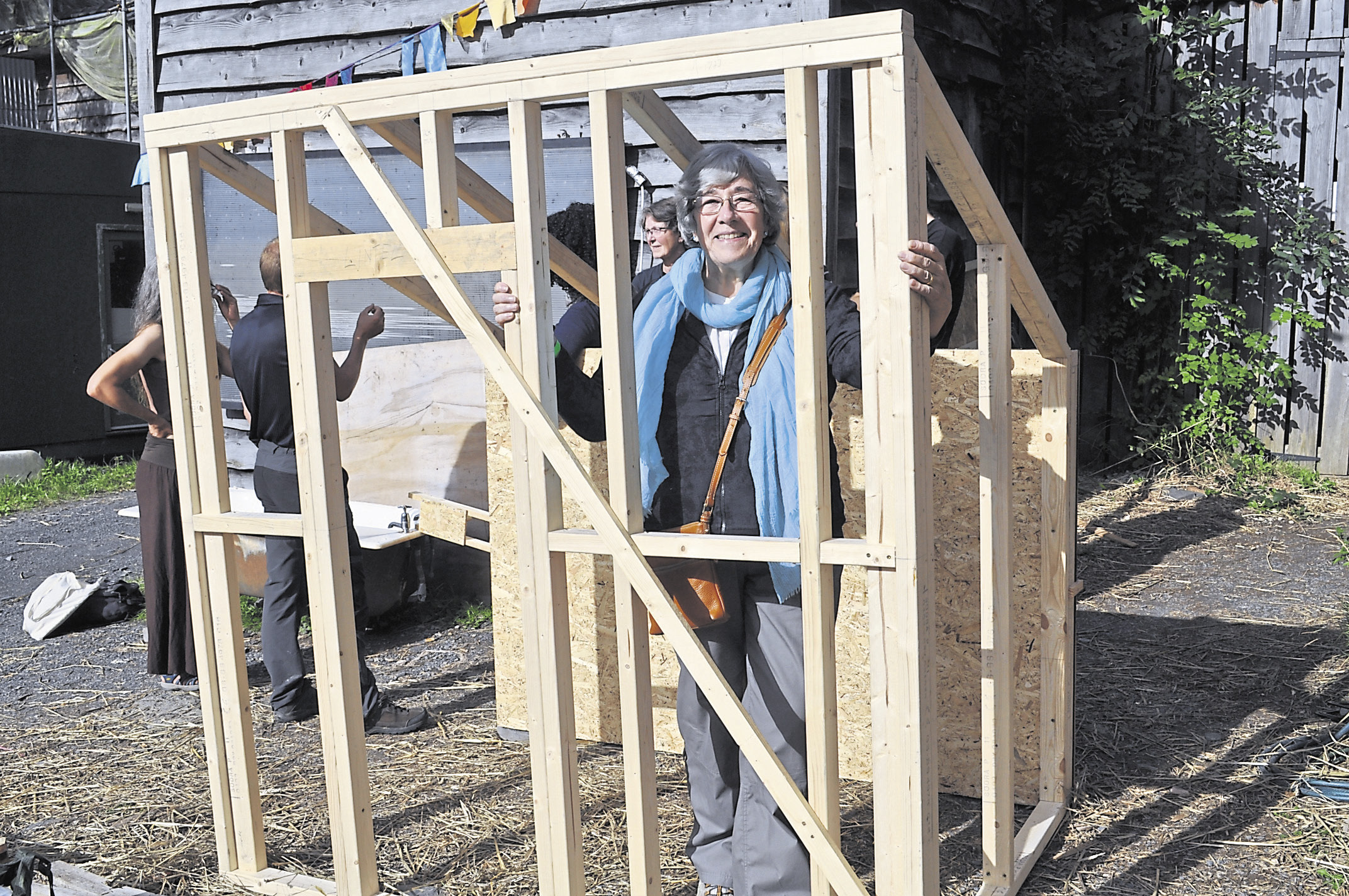
On 10 September, the Centre for Alternative Technology near Machynlleth hosted the EF Schumacher-inspired ‘Small is Beautiful’ festival with an exciting mix of debates, workshops, arts and talks (spanning hydroelectricity, pee power, zero-carbon Britain, aquaponics, campaign-building, thatching, tiny homes, improvising…) with debates captured in visual minutes by Creative Connection.
Practical Action’s Paul Smith Lomas presented a hydroelectricity and mini-grid scheme for Mulanje village in Malawi. The not-for-profit business supplies electricity via a mini-grid and pre-paid meters to a clinic, school, homes and businesses in a remote area traditionally fuelled by candles, kerosene and firewood.
Paul quoted a pupil in the local school: ‘Now we have electricity, my village has a future’, meaning that teaching there is no longer a hardship post and good teachers will want to stay. The project is part of ‘Power for All’, promoting decentralised, democratic, renewable energy schemes and combining them to be the seventh largest energy supplier in the world. While recognising the need for clean energy to reach the third of the global population without access to electricity, some participants were critical of a scheme that perpetuates market-based solutions, delivering energy to those with money while, potentially, encouraging further consumption.
Much debate centred on the ramifications of Brexit. Former Green Party leader Natalie Bennett wanted to keep people active in politics after the referendum debates, advocating politics to be on the school curriculum and encouraging pupils to campaign in their schools for what they want – ‘it is essential for creating active citizens!’
She also urged artists and film makers to imagine positive visions for the future: ‘I want to see a rom-com of boy meets boy, boy splits up with boy, boy gets back together with boy, all set in an equal, just, sustainable society!’
Gretel Leeb (department of environment and rural affairs) was clear that Brexit means shouldering more responsibility for the environment, working together for Wales to lead by example in implementing the Wellbeing of Future Generations Act: ‘small actions have big impact’. Those present agreed that there was a need for more localisation while acknowledging being part of a globalised world.
The participants also enjoyed practical workshops of thatching, building tiny homes, turning wood, carving wind turbine blades, exploring pee power (Glastonbury sports pee-powered toilets) and aquaponics urban food-growing plus much more – while harmonies drifted down from the improv-i-sing workshop. It was a day of action, lively participation and exploration of what a better future might look like.


